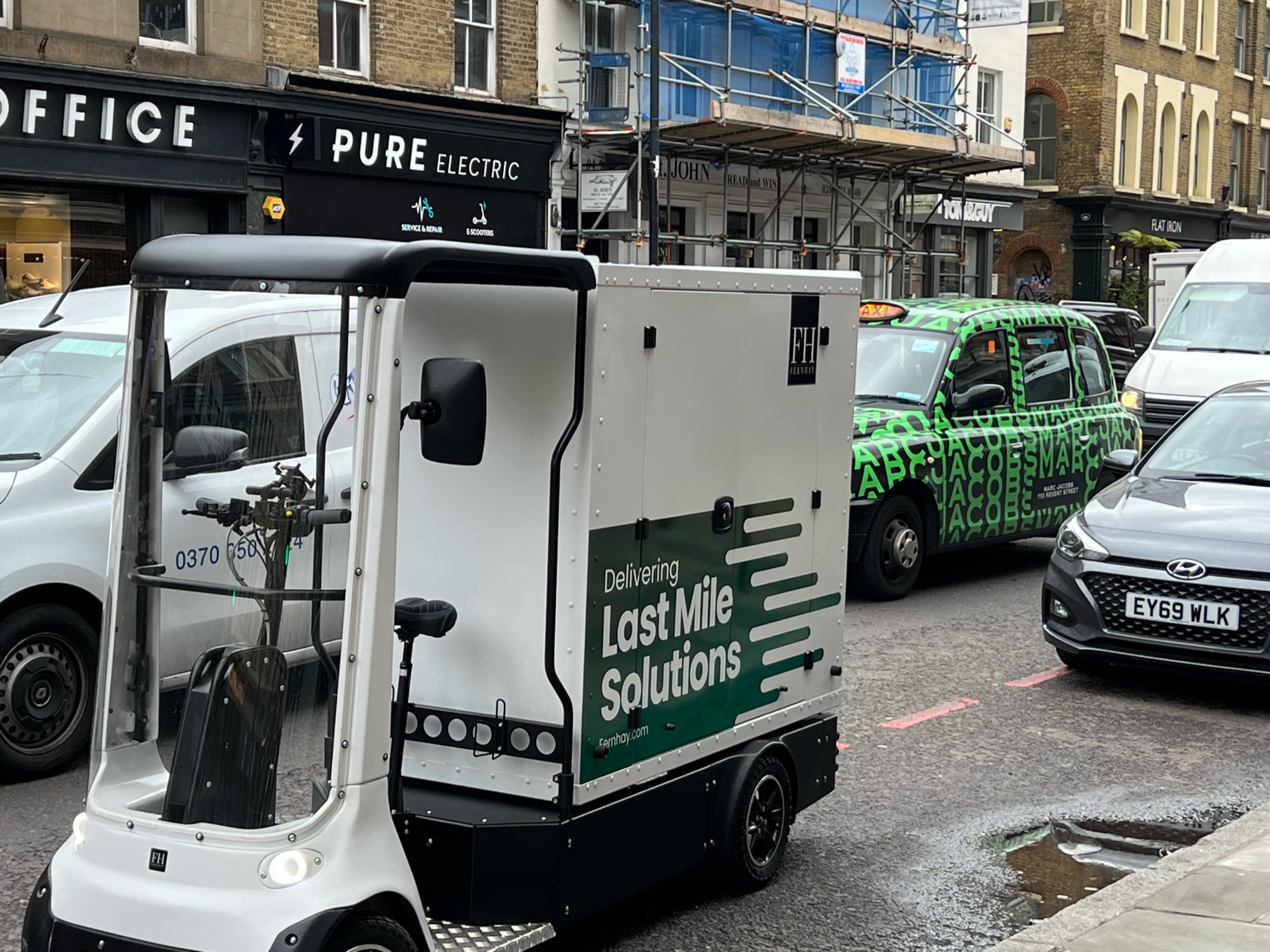City congestion is a persistent challenge that continues to impact the quality of urban life. As populations in cities grow, so do the number of vehicles on the roads, leading to traffic jams, increased pollution, and delays. Fernhay’s eQuads, however, offer a groundbreaking solution to this problem, providing an eco-friendly, efficient, and effective way to deliver goods while navigating the crowded city streets. Let’s explore how these innovative vehicles are transforming urban logistics and helping cities move from traffic to triumph.
What are Fernhay’s eQuads?
Fernhay’s eQuads are electric-assisted cargo bikes designed to deliver goods swiftly and sustainably. These four-wheeled, pedal-powered vehicles are equipped with an electric motor that assists riders, making it easier to traverse steep hills or cover long distances without significant fatigue. The eQuads are compact, enabling them to navigate narrow streets and access restricted areas where traditional delivery vans might struggle. Their design combines the agility of bicycles with the capacity and reliability of delivery vehicles, making them ideal for last-mile delivery solutions in congested urban environments.
The Growing Problem of Urban Congestion
Urban areas around the world face significant congestion problems. According to the latest data from INRIX, drivers in some of the world’s most congested cities lose over 200 hours a year stuck in traffic. Not only does this waste time, but it also contributes to air pollution, impacting public health and the environment. Traditional delivery methods, which often involve large diesel trucks and vans, only add to this problem by clogging narrow streets and producing harmful emissions.
With the demand for e-commerce continuing to rise, the number of delivery vehicles on the road is expected to increase, exacerbating congestion issues. A solution is urgently needed—one that enables fast and reliable deliveries while reducing the environmental impact of urban logistics.
How Fernhay’s eQuads Are Changing the Game
- Reducing Emissions
They are designed to help reduce the carbon footprint of urban deliveries. Unlike traditional delivery vans, which run on fossil fuels, the eQuad is a zero-emission vehicle. It uses electric assistance to support the rider’s pedalling, ensuring that the delivery process is not only efficient but also eco-friendly. By replacing delivery vans with eQuads, companies can significantly cut down on CO2 emissions, contributing to cleaner air and a healthier urban environment.
- Navigating Congested Streets
The compact size allows it to manoeuvre easily through traffic and access areas that are off-limits to larger vehicles. This agility means that delivery times can be reduced as the eQuad can take shortcuts and avoid roadblocks that would delay traditional vans. In addition, the eQuad’s design is compliant with regulations in many cities that restrict vehicle access in certain zones, ensuring that deliveries can still be made without any legal hurdles.
- Efficient Last-Mile Delivery
The “last mile” of delivery is often the most challenging and costly part of the logistics chain. It involves transporting goods from a central hub to the final destination, often within dense urban areas where parking is limited and road space is scarce. The eQuad’s ability to operate in bike lanes, pedestrian areas, and low-emission zones makes it an ideal solution for last-mile deliveries, allowing businesses to get packages to customers quickly and without contributing to traffic congestion.
Case Study: Fernhay’s Impact in Major Cities
In cities like London and Paris, where congestion and air pollution are critical issues, Fernhay’s eQuads have been deployed as part of the solution. Major logistics companies have incorporated eQuads into their fleets to complement traditional delivery vehicles. For example, using eQuads in central London has allowed companies to reduce the number of delivery vans in use, cutting emissions and improving delivery times. In Paris, the eQuad’s ability to bypass traffic has enabled logistics providers to meet customer demand for same-day delivery while reducing operational costs.
The Financial Benefits for Businesses
Switching to Fernhay doesn’t just benefit the environment; it also makes financial sense for businesses. The operating costs of an eQuad are significantly lower than those of traditional delivery vehicles, as they do not require fuel and have fewer maintenance needs. Additionally, the ability to avoid congestion charges and low-emission zone fees in some cities can lead to considerable cost savings. For businesses looking to improve their sustainability credentials while also cutting costs, eQuads represent a smart investment.
Looking to the Future: The Role of eQuads in Urban Mobility
As cities continue to seek ways to become more sustainable and livable, solutions like Fernhay’s eQuads will play a critical role in shaping the future of urban mobility. These vehicles align with the growing trend towards micromobility—small, electric-powered vehicles used for short trips within cities. With governments increasingly supporting initiatives that promote sustainable transport, including grants and incentives for businesses that adopt green delivery solutions, the adoption of eQuads is likely to grow.
Moreover, advancements in battery technology and logistics software will only enhance the capabilities of eQuads, making them even more efficient and adaptable to different delivery scenarios. As urban areas aim to reduce vehicle traffic and achieve ambitious climate targets, eQuads will be a key tool in transforming city logistics.
Conclusion
Fernhay represent a forward-thinking approach to the challenges of city congestion and environmental sustainability. By offering a practical, eco-friendly alternative to traditional delivery vehicles, they are not only helping to ease traffic but also paving the way for a cleaner, healthier future. As businesses and cities alike recognise the benefits of integrating eQuads into their logistics networks, the shift from traffic to triumph will become a reality, making urban living more enjoyable for all.

